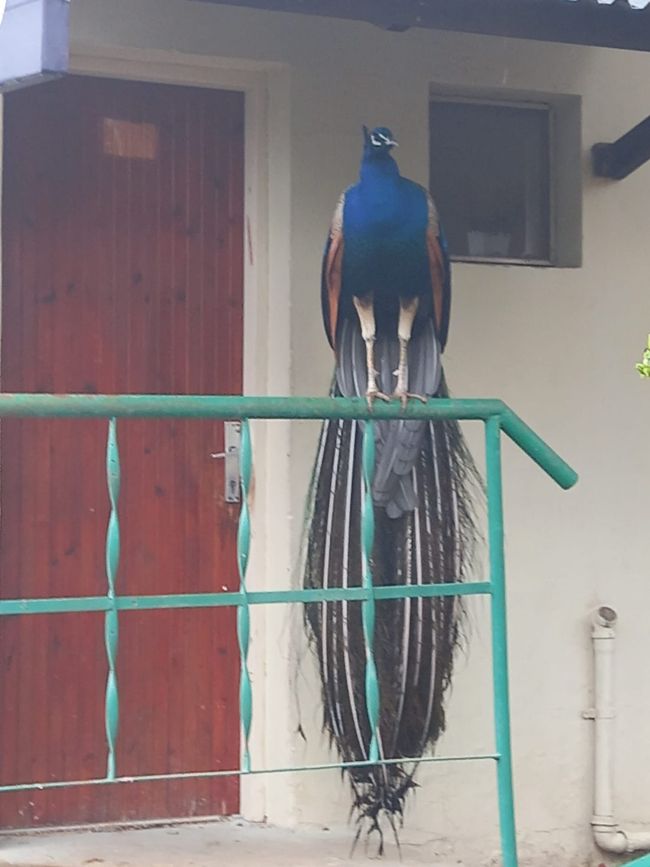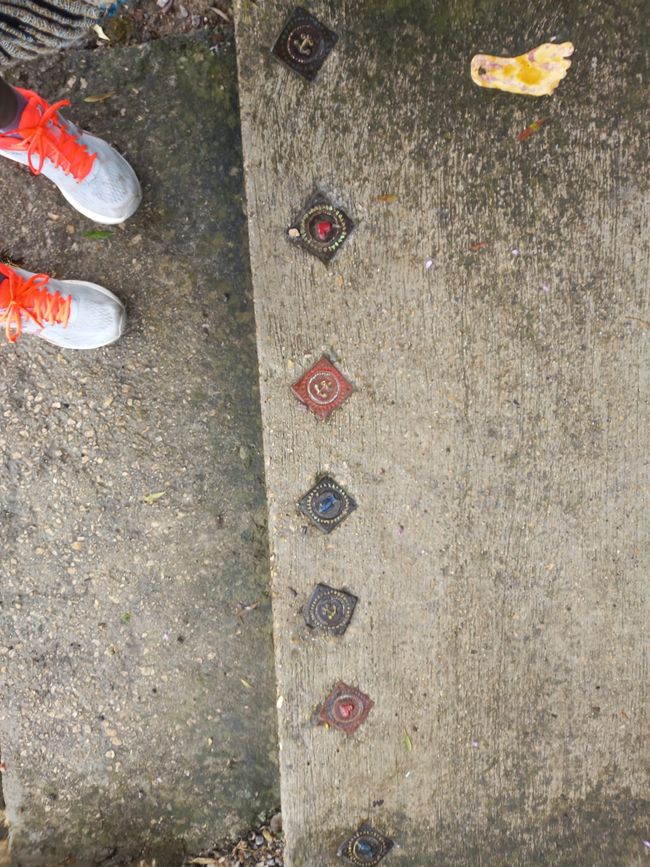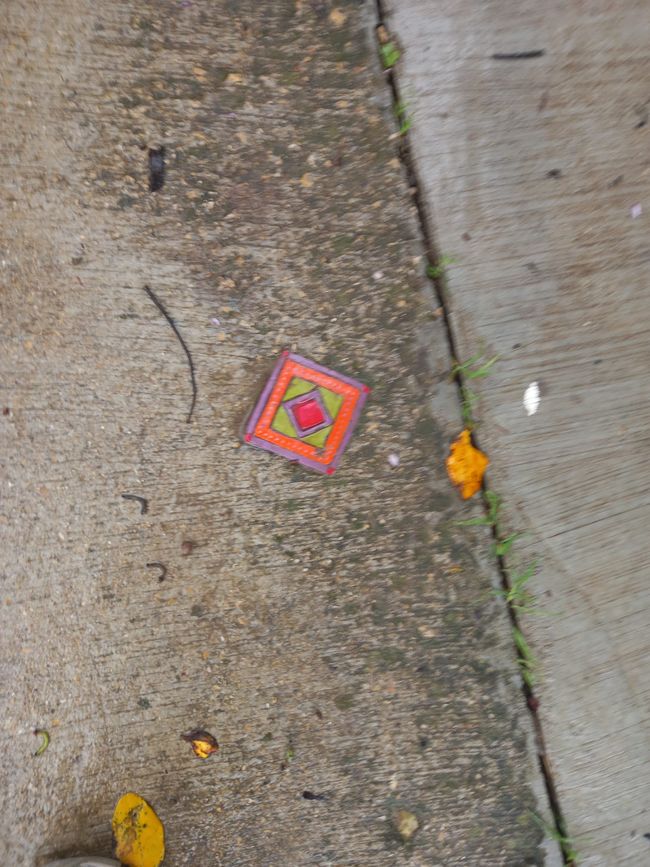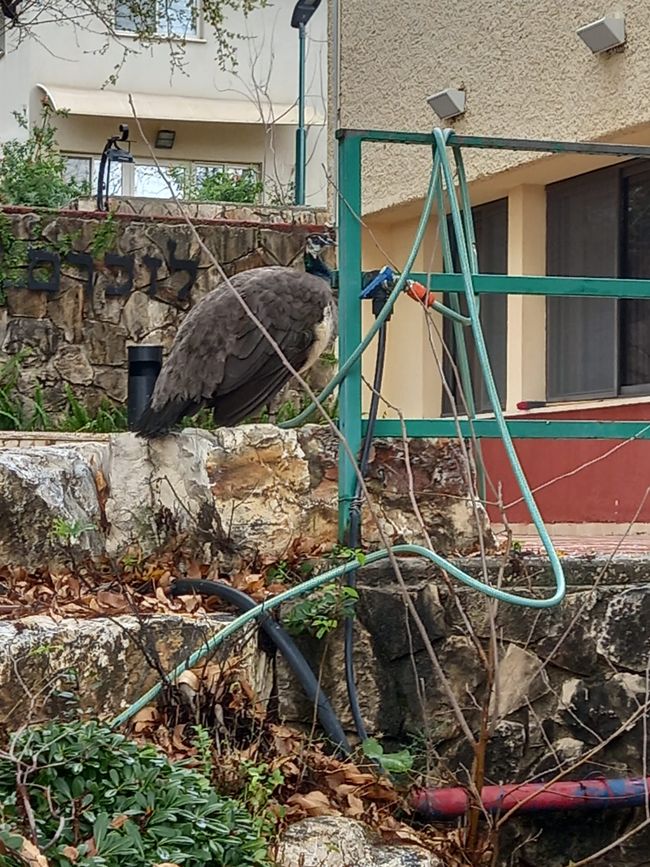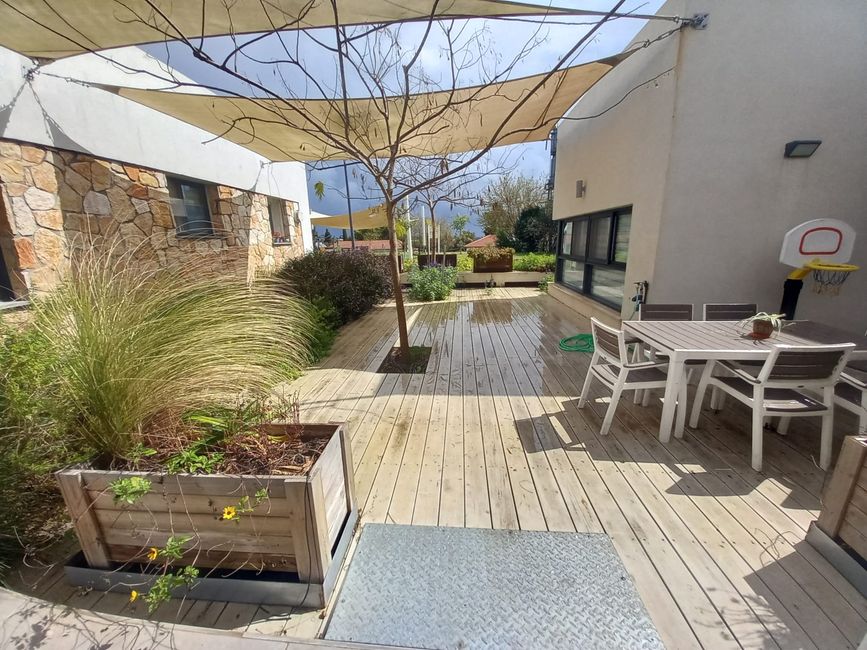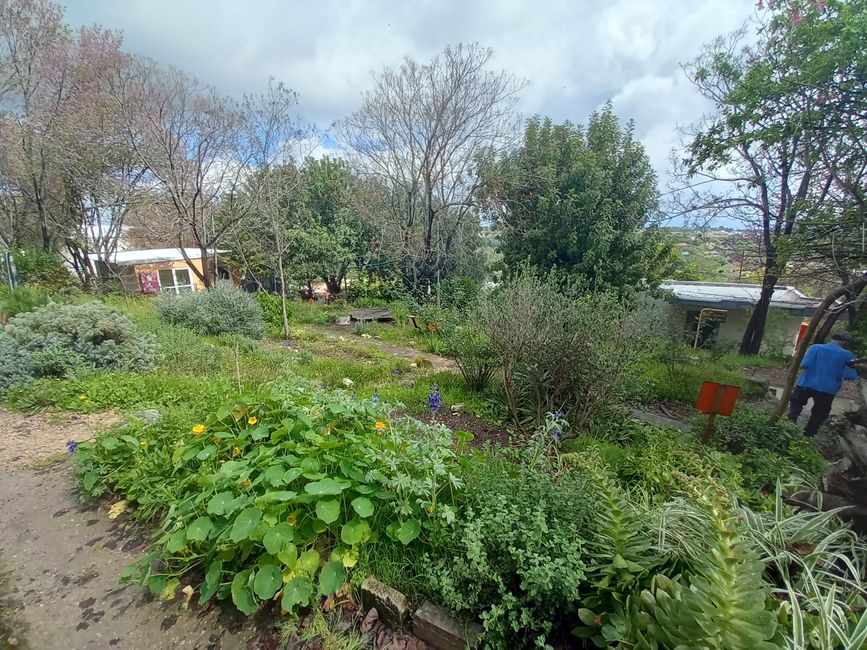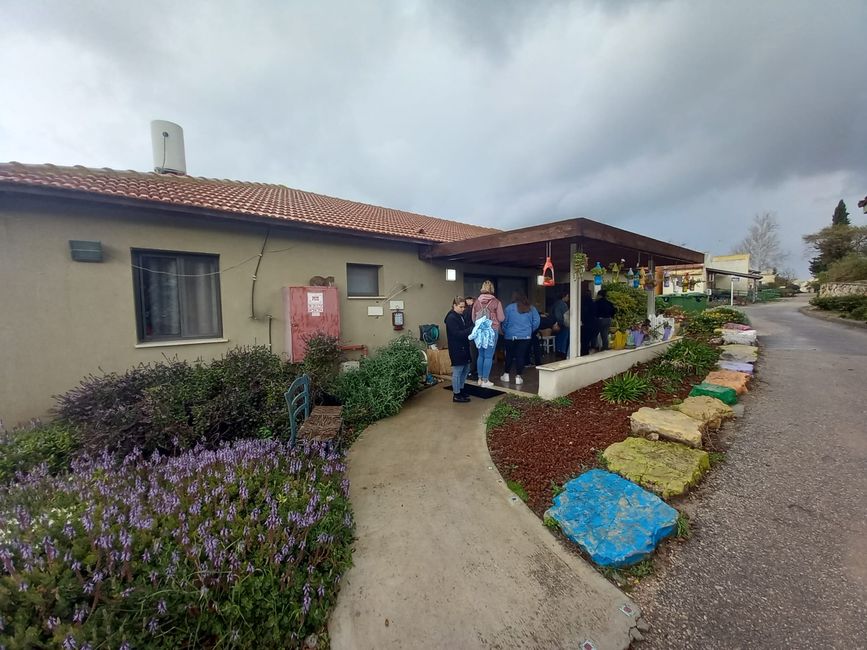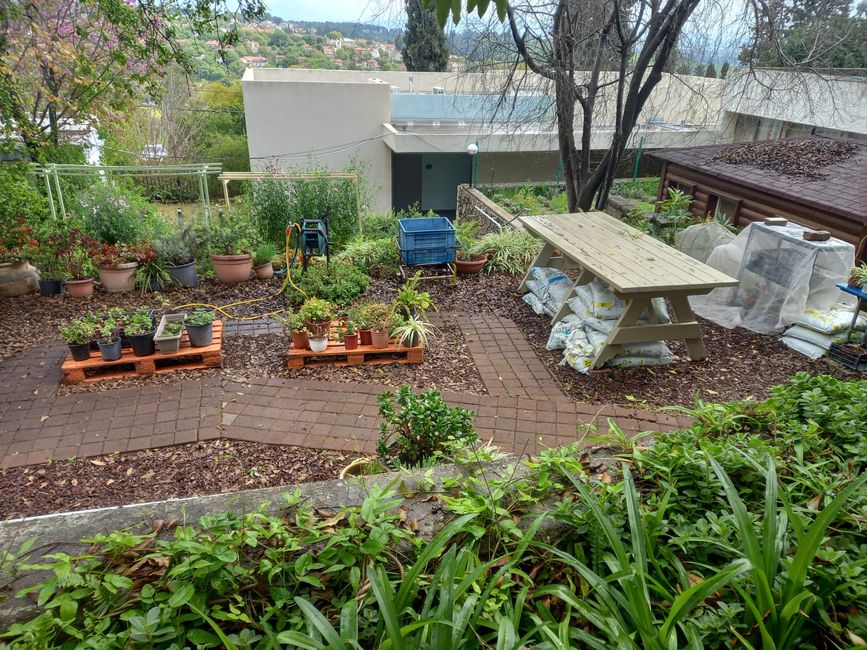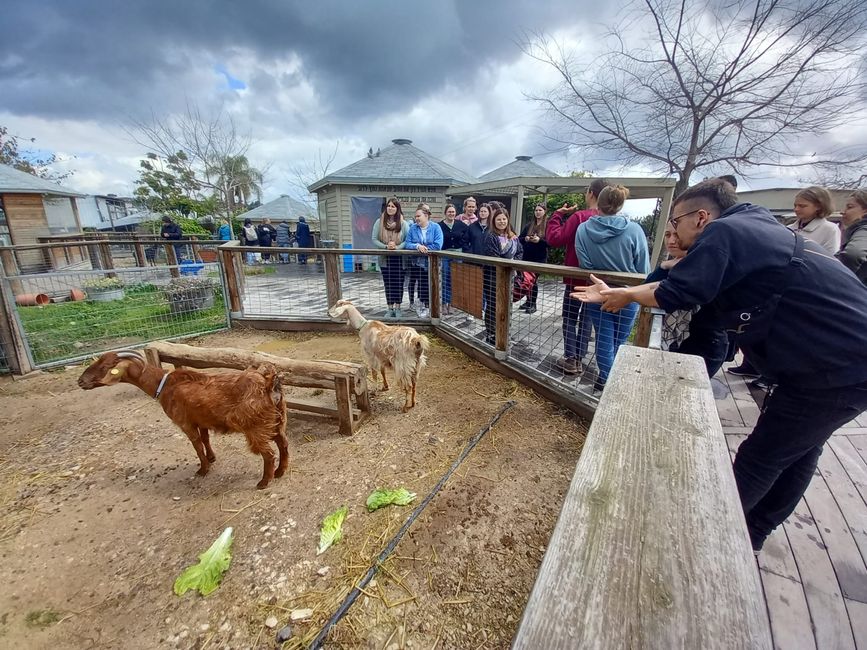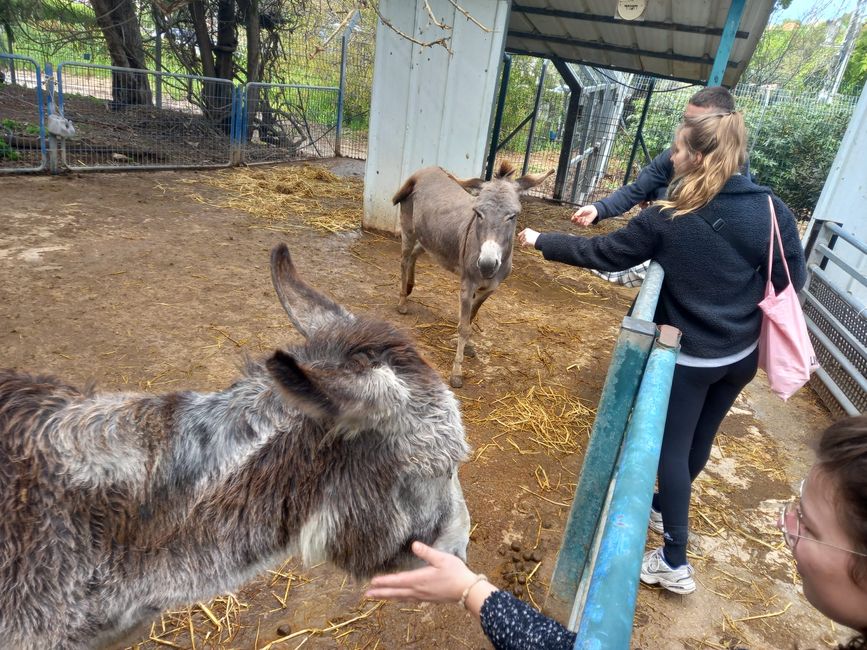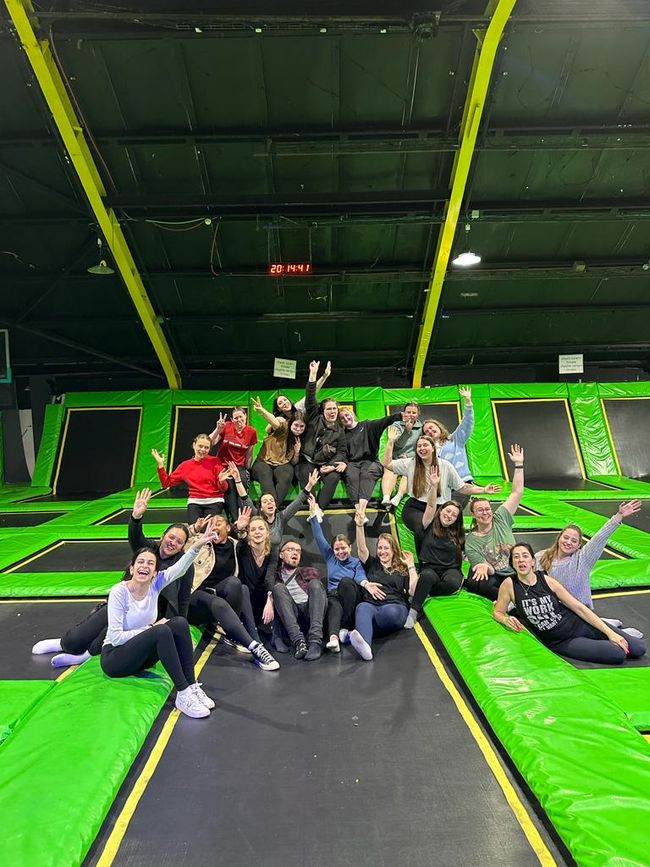Day 10
Tshaj tawm: 24.05.2023
Sunday, March 19, 2023
Meeting at 10:30 am at Oranim College, unfortunately it's raining again... We are taking the bus to Kfar Tikva, a kibbutz-like village whose residents are people with intellectual and/or physical disabilities. They live and work on the premises and are supported to be as independent as possible in their (working) daily lives.
The first item on the agenda is a guided tour with Noah, one of the managers, and two volunteers from Germany, Ella and Johanna. But before we can start, we discover the peacock and his mate, like the enchanted tourists, and take plenty of photos. ;)
Then we first visit the various types of housing (individual apartments, double apartments, 6-person shared flat - we are allowed to take a look inside one) and the area for the older, dependent people. There is a lot of joy and excitement about our visit here, and we are encouraged to look at, participate in, and be shown as much as possible. :) Next, we visit the greenhouse, which impresses with its vegetable cultivation and flower meadow. And then we go to the animal enclosure. There are turtles, chickens, budgies, donkeys, goats, horses, and enthusiastic staff members who are happy to be observed. The pottery and textile workshop are housed in the shop building, and both make you want to buy souvenirs in the store.
After the tour, one of the main goals of the facility is very clear: to provide the residents with a lifelong home. They come to Kfar Tikva at the age of 21, after finishing school, and if it fits, they find an apartment or room for the rest of their lives. Many moves should be avoided in order to provide as much stability and normality as possible. Only in cases of severe care dependence do the residents move to the section for the elderly and dependent.
The close bond that residents and staff members build together is one of the most important building blocks for the success of the Kfar Tikva concept: living and working together. In the greenhouse, there is also a small special feature: one of the former volunteers is commemorated here by his own request. His connection to Kfar Tikva has been very close for a lifetime.
Back in the lecture room, Joseph, an English-speaking resident, is waiting for us and willingly allows himself to be grilled. He enjoys talking about his work and the various workplaces he has had within the facility. Changes are possible and desired, because sometimes the collaboration with colleagues or other residents no longer fits, or the physical and/or mental condition changes.
The highlight during the Q&A session is definitely the delicious cookies, cakes, and snacks that he brought fresh from the bakery!
The second item on the agenda is Ramat Hadassa, a youth village for youth at risk. Here, children and teenagers between the ages of 12 and 21 live and learn, who come from risky family environments where they can no longer live well and safely. For example, because the parents are addicted to drugs or overwhelmed with their children, or because there is a lot of violence. Without appropriate support, these children would have no chance of obtaining a good school leaving certificate and growing up in stable conditions, which they need for their later life. The youth village wants to compensate for this lack.
Here, too, the place has a kibbutz-like structure: the children and teenagers live and learn here and only spend their holidays at home if their family circumstances allow it. It may be comparable to a boarding school, except that no school fees need to be paid for accommodation and education, but rather the state of Israel covers these costs.
One remarkable point is the families who live around the school grounds: they are caregivers and teachers who provide the children with examples of a normal family life.
Stigmatization based on origin is often a point that many students from difficult living conditions are familiar with. To counteract this, the children and teenagers in this youth village have the opportunity to become part of a road cycling team or do show jumping, both at a national competitive level. They should be able to practice special sports like other children. It should also enable the students to experience a sense of achievement through learning and adhering to self-discipline and team spirit, and to strengthen their self-confidence.
After a small lecture unit and a tour of the premises, this visit ends at the animal enclosure. Petting donkeys, marveling at turtles, and whispering with horses. Perfect ending! :)
We return to the college by bus and have a lunch together in the cafeteria. The nougat croissants, which you can warm up again in a small grill, are highly recommended! ;) In the evening, (almost) everyone goes to the trampoline park to get rid of the last reserves of energy by disco jumping and sing along to Israeli pop songs karaoke-style. Only Sarah treats herself to a relaxed sushi feast at home with Hamutal and her boyfriend Danny and their two girls: it's Danny's birthday. ;)
Teb


